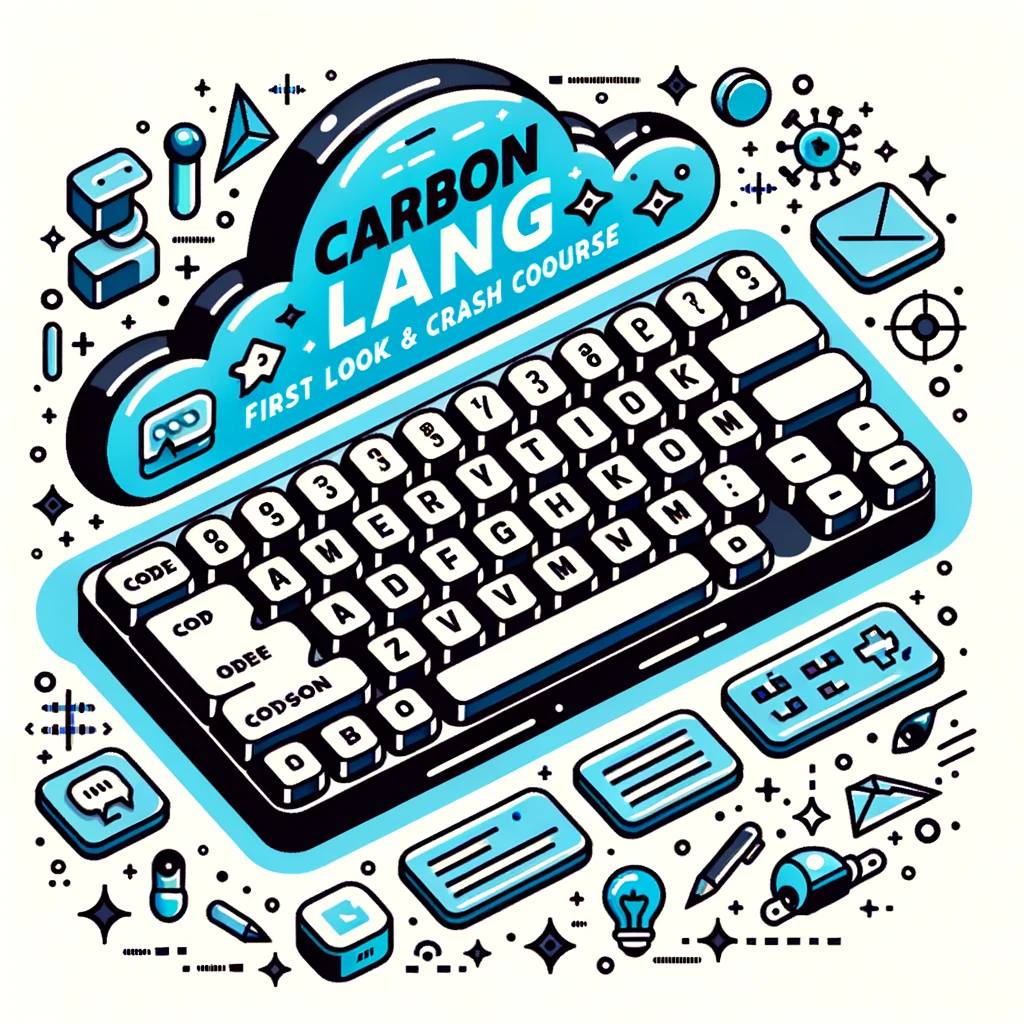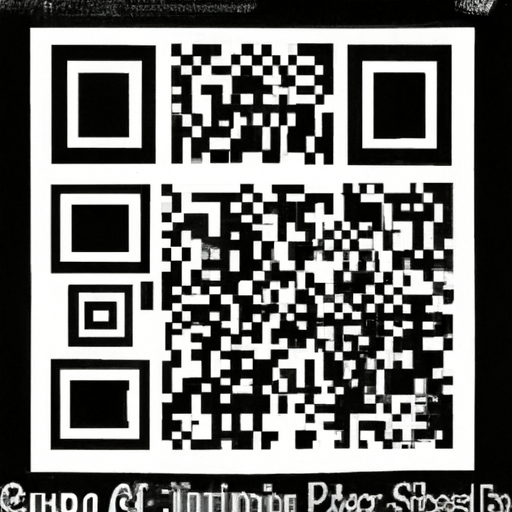Have you ever wondered about the different career paths you can pursue as a web developer? In this article, we explore 15 web developer-related roles that you can consider. From UI/UX designer to blockchain developer, each role offers its own set of skills, tools, and opportunities. The lines between front-end and back-end development are blurring, with advancements in server-side frameworks and AI technologies. It is important to specialize in a specific area of web development to succeed, and finding your passion is key. So, whether you’re interested in creating immersive AR/VR experiences or building secure web applications, there’s a wide range of exciting career paths in the field of web development waiting for you to explore.
UI/UX Designer
Role and Responsibilities of a UI/UX Designer
As a UI/UX Designer, your role revolves around creating a visually appealing and user-friendly experience for websites and applications. You are responsible for designing the look, feel, and functionality of the user interface, ensuring that it is both visually appealing and easy to navigate. Your main goal is to provide a seamless user experience that meets the needs of the target audience.
Your responsibilities include:
- Conducting user research to understand the needs and preferences of the target audience.
- Creating wireframes and prototypes to plan out the layout and structure of web pages or app screens.
- Designing user interfaces that are visually appealing, intuitive, and user-friendly.
- Collaborating with developers to ensure that the design is implemented accurately.
- Conducting usability testing to gather feedback and make improvements.
- Staying updated with the latest design trends and technologies.
Necessary Skills for a UI/UX Designer
To excel as a UI/UX Designer, you need to possess a combination of technical skills and creativity. Here are some necessary skills for this role:
- Proficiency in design tools such as Figma, Sketch, or Adobe XD.
- Knowledge of design principles, including typography, color theory, and visual hierarchy.
- Understanding of user research methodologies and usability testing.
- Familiarity with prototyping tools to create interactive mockups.
- Ability to collaborate effectively with other team members, such as developers and product managers.
- Strong communication and problem-solving skills.
- Attention to detail and ability to prioritize tasks.
Employment Opportunities for UI/UX Designers
As a UI/UX Designer, you can explore various employment opportunities in industries such as technology, e-commerce, startups, and design agencies. Some common job titles include:
- UI/UX Designer
- Interaction Designer
- Product Designer
- Web Designer
- User Researcher
UI/UX Designers are in high demand as companies recognize the importance of providing a seamless user experience to their customers. You can choose to work as part of an in-house design team or as a freelancer, offering your services to multiple clients.
SPA/Frontend Developer
Role and Responsibilities of a SPA/Frontend Developer
As a Single Page Application (SPA) or Frontend Developer, your role is focused on creating web applications that dynamically update content without requiring the page to reload. You specialize in front-end JavaScript frameworks like React, Angular, Vue, or Svelte.
Your responsibilities include:
- Implementing client-side routing to manage views and components.
- Mastering a front-end framework and its ecosystem.
- Constructing components and ensuring their seamless integration.
- Managing application state using tools like Redux or Vuex.
- Interacting with APIs to fetch data and handle responses.
- Building user interfaces that are responsive and visually appealing.
- Collaborating with designers to implement their designs accurately.
- Ensuring cross-browser compatibility and optimizing performance.
Necessary Skills for a SPA/Frontend Developer
To succeed as a SPA/Frontend Developer, you need to have a strong foundation in HTML, CSS, and JavaScript. Here are some necessary skills for this role:
- Proficiency in a front-end framework like React, Angular, Vue, or Svelte.
- Excellent knowledge of HTML, CSS, and JavaScript.
- Familiarity with front-end development tools like Webpack or Parcel.
- Understanding of client-side routing and state management.
- Experience with REST or GraphQL APIs and interacting with them using tools like axios or fetch.
- Knowledge of version control systems like Git.
- Strong problem-solving and debugging skills.
- Awareness of web accessibility standards.
Employment Opportunities for SPA/Frontend Developers
Front-end development has become increasingly vital as user interfaces become more complex and interactive. The demand for SPA/Frontend Developers is high in various industries, including technology, e-commerce, and startups.
Some common job titles for SPA/Frontend Developers include:
- Frontend Developer
- UI Developer
- JavaScript Developer
- React/Angular/Vue Developer
You can choose to work for established companies, startups, or freelance on a project basis. There are plenty of opportunities to work on exciting and innovative projects as a SPA/Frontend Developer.
Server-Side/Full Stack Developer
Role and Responsibilities of a Server-Side/Full Stack Developer
A Server-Side/Full Stack Developer focuses on creating web applications that generate and render content on the server before delivering it to the client’s browser. They handle the heavy logic and data processing, as well as the integration of databases and APIs.
Your responsibilities include:
- Selecting a server-side technology or language, such as Node.js, Python, Ruby, or PHP.
- Choosing a server-side framework, such as Express, Django, Ruby on Rails, or Laravel.
- Designing and creating databases and implementing database management systems, such as PostgreSQL, MySQL, or MongoDB.
- Building the server-side logic that handles data processing, business logic, and authentication.
- Implementing server-side rendering or server-side rendering frameworks.
- Handling API integrations and managing data flow between the server and client.
- Ensuring security and protection against common web vulnerabilities.
Necessary Skills for a Server-Side/Full Stack Developer
To excel as a Server-Side/Full Stack Developer, you need a combination of front-end and back-end development skills. Here are some necessary skills for this role:
- Proficiency in a server-side language such as Node.js, Python, Ruby, PHP, or Java.
- Knowledge of server-side frameworks like Express, Django, Ruby on Rails, Laravel, or Spring.
- Experience with database management systems such as PostgreSQL, MySQL, MongoDB, or SQL Server.
- Understanding of server-side rendering or server-side rendering frameworks.
- Familiarity with API development and integration.
- Knowledge of web security best practices and common vulnerabilities.
- Strong problem-solving and debugging skills.
- Ability to work with both front-end and back-end technologies.
Employment Opportunities for Server-Side/Full Stack Developers
Server-Side/Full Stack Developers are in demand as they have the skills to handle the entire application development process. You can find employment opportunities in various industries, including technology companies, startups, and consulting firms.
Some common job titles for Server-Side/Full Stack Developers include:
- Full Stack Developer
- Web Developer
- Server-Side Developer
- Back-End Developer
With the flexibility to work on both the front-end and back-end, Server-Side/Full Stack Developers can contribute to a wide range of projects and work in diverse tech environments.
API/Microservices Developer
Role and Responsibilities of an API/Microservices Developer
API/Microservices Developers specialize in creating small, independent services that communicate through APIs. They design, develop, and maintain microservice architectures that enable the development of scalable and modular applications.
Your responsibilities include:
- Creating and managing microservices using a server-side language and framework.
- Developing secure APIs that adhere to industry best practices.
- Implementing service discovery, load balancing, and fault tolerance for microservices.
- Building API gateways for routing and load balancing requests to microservices.
- Integrating authentication and authorization mechanisms for API access.
- Ensuring the scalability and performance of microservices.
- Monitoring and debugging API issues to identify and resolve bottlenecks or bugs.
Necessary Skills for an API/Microservices Developer
To excel as an API/Microservices Developer, you need a strong foundation in server-side development and a deep understanding of API design principles. Here are some necessary skills for this role:
- Proficiency in a server-side language such as Node.js, Python, Ruby, Java, or C#.
- Knowledge of server-side frameworks suitable for building microservices, such as Express, Flask, Ruby on Rails, Spring Boot, or ASP.NET Core.
- Familiarity with REST or GraphQL API design principles.
- Experience with message-based communication systems like RabbitMQ or Apache Kafka.
- Understanding of service discovery, load balancing, and fault tolerance.
- Knowledge of authentication and authorization mechanisms like OAuth or JWT.
- Strong problem-solving and debugging skills.
- Ability to architect and design scalable microservice architectures.
Employment Opportunities for API/Microservices Developers
The demand for API/Microservices Developers has grown as more organizations opt for a modular and scalable architecture. You can find employment opportunities in industries such as technology, finance, healthcare, and logistics.
Some common job titles for API/Microservices Developers include:
- API Developer
- Microservices Developer
- Backend Developer
- Integration Engineer
As an API/Microservices Developer, you have the opportunity to work on complex projects and contribute to the development of scalable and robust applications.
DevOps Engineer
Role and Responsibilities of a DevOps Engineer
As a DevOps Engineer, your role revolves around the deployment and operations of web applications. You focus on automating processes, streamlining development workflows, and ensuring the smooth operation of the application infrastructure.
Your responsibilities include:
- Building and maintaining the application infrastructure using tools like Docker, Kubernetes, or AWS.
- Automating deployment processes, ensuring continuous integration and continuous deployment (CI/CD).
- Monitoring and optimizing system performance, identifying and resolving bottlenecks or issues.
- Implementing security measures and best practices to protect the application and infrastructure.
- Collaborating with developers to streamline development workflows and improve productivity.
- Troubleshooting and resolving infrastructure-related issues in a timely manner.
- Ensuring high availability, scalability, and reliability of the application.
Necessary Skills for DevOps Engineers
To succeed as a DevOps Engineer, you need a strong technical background and expertise in various tools and technologies. Here are some necessary skills for this role:
- Proficiency in infrastructure-as-code tools like Terraform or CloudFormation.
- Experience with containerization technologies like Docker or Kubernetes.
- Knowledge of cloud platforms such as AWS, Azure, or Google Cloud.
- Familiarity with configuration management tools like Ansible or Chef.
- Understanding of CI/CD processes and tools such as Jenkins or GitLab.
- Expertise in monitoring and logging tools like Prometheus, Grafana, or ELK stack.
- Knowledge of scripting languages like Bash, Python, or Ruby.
- Strong problem-solving and troubleshooting skills.
Employment Opportunities for DevOps Engineers
DevOps Engineers are in high demand as organizations prioritize automation and efficiency in their development processes. You can find employment opportunities in various industries, ranging from technology companies to finance and healthcare.
Some common job titles for DevOps Engineers include:
- DevOps Engineer
- Site Reliability Engineer (SRE)
- Cloud Engineer
- Infrastructure Engineer
As a DevOps Engineer, you have the opportunity to work on cutting-edge technologies and contribute to the development of scalable and automated application infrastructure.
Mobile Developer
Role and Responsibilities of a Mobile Developer
As a Mobile Developer, your role is to create applications for smartphones and tablets. You specialize in developing mobile applications that run either natively on a specific platform or cross-platform applications that work across multiple platforms.
Your responsibilities include:
- Developing mobile applications using programming languages like Swift (for iOS) or Kotlin/Java (for Android).
- Collaborating with designers to implement the user interface and user experience.
- Integrating with APIs to fetch data and handle responses.
- Ensuring the performance, responsiveness, and usability of mobile applications.
- Troubleshooting and resolving bugs or issues specific to mobile platforms.
- Optimizing mobile applications for speed and efficiency.
- Staying updated with the latest mobile development trends and best practices.
Necessary Skills for Mobile Developers
To excel as a Mobile Developer, you need to have strong programming skills and a deep understanding of mobile platforms. Here are some necessary skills for this role:
- Proficiency in mobile programming languages such as Swift, Kotlin, or Java.
- Knowledge of mobile development frameworks like React Native, Flutter, or Xamarin.
- Experience with mobile UI/UX design principles and implementation.
- Familiarity with REST APIs and integrating with backend services.
- Understanding of mobile-specific performance optimization techniques.
- Strong problem-solving and debugging skills.
- Ability to adapt to different mobile platforms and development environments.
- Knowledge of app store submission processes and guidelines.
Employment Opportunities for Mobile Developers
Mobile Developers are in high demand as smartphones and tablets continue to dominate the digital landscape. You can find employment opportunities in industries such as technology, e-commerce, media, and entertainment.
Some common job titles for Mobile Developers include:
- iOS Developer
- Android Developer
- Mobile App Developer
- Cross-Platform Developer
As a Mobile Developer, you have the opportunity to work on exciting and innovative projects, develop applications used by millions of users, and contribute to the rapidly evolving mobile industry.
Freelance Web Developer
Role and Responsibilities of a Freelance Web Developer
As a Freelance Web Developer, your role is to quickly build websites and applications for clients on a project basis. You have the flexibility to work independently and offer your services to multiple clients, delivering high-quality web solutions.
Your responsibilities include:
- Communicating with clients to understand their requirements and objectives.
- Translating client requirements into functional websites or applications.
- Designing and developing websites or applications using HTML, CSS, and JavaScript.
- Integrating content management systems (CMS) for clients to manage their websites.
- Testing and troubleshooting websites or applications to ensure functionality and responsiveness.
- Optimizing websites or applications for search engine optimization (SEO) and performance.
- Maintaining websites or applications and providing ongoing support and updates.
Necessary Skills for Freelance Web Developers
To thrive as a Freelance Web Developer, you need a diverse skill set and the ability to work independently. Here are some necessary skills for this role:
- Proficiency in web development languages such as HTML, CSS, and JavaScript.
- Familiarity with front-end frameworks like React, Angular, or Vue.
- Knowledge of server-side development languages like Node.js, PHP, or Python.
- Understanding of content management systems like WordPress, Shopify, or Joomla.
- Experience with version control systems like Git.
- Strong problem-solving and troubleshooting skills.
- Excellent communication and client management skills.
- Ability to deliver quality work on tight deadlines.
Employment Opportunities for Freelance Web Developers
As a Freelance Web Developer, you have the opportunity to work on a wide range of projects and collaborate with different clients. You can find employment opportunities through online platforms, referrals, or by building a strong portfolio.
Freelance Web Developers often work with small businesses, startups, or entrepreneurs who need websites or applications but may not have the resources to hire full-time developers. With the growth of the gig economy, freelance opportunities continue to expand.
Ecommerce Developer
Role and Responsibilities of an Ecommerce Developer
As an Ecommerce Developer, your role is to specialize in creating online shopping platforms. You develop and maintain the technical infrastructure of ecommerce websites, ensuring smooth transactions, secure payment gateways, and a seamless user experience.
Your responsibilities include:
- Developing and customizing ecommerce websites or platforms using CMS like Magento, Shopify, or WooCommerce.
- Integrating payment gateways and ensuring secure transactions.
- Creating product catalogs, managing inventory, and handling order processing.
- Optimizing websites for search engine rankings and performance.
- Implementing user-friendly navigation and intuitive checkout processes.
- Collaborating with designers to implement an attractive and visually appealing user interface.
- Ensuring website security and protection against fraud or cyber attacks.
Necessary Skills for an Ecommerce Developer
To excel as an Ecommerce Developer, you need a strong understanding of ecommerce platforms and web development. Here are some necessary skills for this role:
- Proficiency in ecommerce platforms such as Magento, Shopify, or WooCommerce.
- Knowledge of web programming languages such as HTML, CSS, and JavaScript.
- Experience with front-end frameworks like Bootstrap or Foundation.
- Understanding of server-side languages such as PHP or Python.
- Familiarity with database management systems like MySQL or PostgreSQL.
- Knowledge of payment gateway integration and secure transaction processing.
- Understanding of SEO best practices for ecommerce websites.
- Strong problem-solving and troubleshooting skills.
Employment Opportunities for Ecommerce Developers
Ecommerce Developers are in demand as the popularity of online shopping continues to grow. You can find employment opportunities in industries such as retail, technology, and digital marketing.
Some common job titles for Ecommerce Developers include:
- Ecommerce Developer
- Magento Developer
- Shopify Developer
- WooCommerce Developer
You can choose to work with established e-commerce companies, agencies specializing in e-commerce, or as a freelance developer, offering your services to various clients.
Web Security Specialist
Role and Responsibilities of a Web Security Specialist
As a Web Security Specialist, your role is to protect websites from cyber attacks and identify security vulnerabilities. You work closely with development teams to implement security measures, conduct security audits, and ensure the integrity and confidentiality of user data.
Your responsibilities include:
- Conducting security audits and vulnerability assessments of websites and applications.
- Identifying and resolving security vulnerabilities, such as cross-site scripting (XSS) or SQL injection.
- Implementing secure coding practices in applications to prevent common web vulnerabilities.
- Monitoring and investigating suspicious activities or cyber threats.
- Ensuring compliance with industry standards and regulations.
- Educating development teams on security best practices and promoting a security-conscious culture.
- Developing and implementing incident response plans in case of security breaches.
Necessary Skills for Web Security Specialists
To excel as a Web Security Specialist, you need a deep understanding of web vulnerabilities and security best practices. Here are some necessary skills for this role:
- Knowledge of common web vulnerabilities, such as XSS, CSRF, SQL injection, or insecure direct object references.
- Familiarity with web application security scanners and tools, such as OWASP ZAP or Burp Suite.
- Understanding of security standards and regulations, like OWASP Top 10 or PCI DSS.
- Experience with penetration testing and ethical hacking techniques.
- Knowledge of secure coding practices, encryption, and authentication mechanisms.
- Understanding of network security principles and protocols.
- Strong problem-solving and analytical skills.
- Continuous learning to stay updated with the latest security threats and defense mechanisms.
Employment Opportunities for Web Security Specialists
Web Security Specialists are in high demand as cybersecurity becomes a critical concern for businesses. You can find employment opportunities in industries such as technology, finance, healthcare, and government.
Some common job titles for Web Security Specialists include:
- Web Security Specialist
- Application Security Engineer
- Cybersecurity Analyst
- Penetration Tester
You can work as part of a cybersecurity team within a company or as a consultant, offering your expertise to multiple clients. The need for Web Security Specialists will continue to grow as the digital landscape becomes more complex and cyber threats become more sophisticated.
Conclusion
Choosing the right career path in web development can be overwhelming due to the wide range of roles and technologies available. It is essential to explore different areas and find your passion to succeed in this field.
Continued learning and specialization are crucial in web development as technologies and tools evolve rapidly. Staying updated with the latest trends and honing your skills in your chosen area of expertise will give you a competitive edge in the job market.
Passion and dedication are essential qualities for success in web development. Finding an area that you truly enjoy and are enthusiastic about will drive your motivation and contribute to your professional growth.
Whether you choose to become a UI/UX Designer, SPA/Frontend Developer, Server-Side/Full Stack Developer, API/Microservices Developer, DevOps Engineer, Mobile Developer, Freelance Web Developer, Ecommerce Developer, Web Security Specialist, or any other web development career path, the opportunities in this field are vast.
Embrace the challenge, continue learning, and enjoy the journey as you build your career as a web developer.










